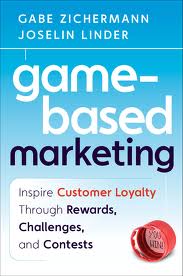A Wall Street Journal article today touts an upcoming book by Harry Hurt III, which recounts a cross-country road trip with an impressive list of encounters with notable figures including former President Bush. But more notably, this book includes a plethora of product-placement deals and other sponsorships. This approach, while innovative, may raise issues in connection with the FTC Endorsement Guidelines. If applicable, the guidelines may create legal issues for Mr. Hurt and the sponsors. A prior post highlights some recent enforcement actions for those who have not complied. This is an issue that journalists and advertisers need to pay heed to because additional enforcements are likely.
The range of sponsorships include deals that range from companies agreeing to: promote his book through e-mail, Twitter, Facebook and other electronic blasts in exchange for advertising within the book; supply travel gear (e.g. Coleman Co. providing sleeping bag, tent and $2500 cash) for which Mr. Hurt endorses Coleman’s products saying things such as “the Coleman engineers have done a remarkable job…”; and $1,000 in monthly credits from Best Western International in exchange for filming videos showcasing the hotels’ amenities. Interestingly, a hotel spokesperson called this deal “standard industry practice” for bloggers and free-lancers.
Kudos to Mr. Hurt and his sponsors for the innovative approach that enabled him to self fund and self publish this e-book. However,
as the article notes, his dual role as both an ad salesman and a journalist strikes “an unholy alliance.” The issue is whether an author, beholden to such sponsorships, can be objective in his or her writings. In the article, Mr. Hurt stated that the book is “mainly the truth,” but recognized that it may raise questions as to his objectivity. He added that he doesn’t believe his objectivity was compromised because he only struck deals with companies he already patronized and asked readers to trust his judgment and integrity.
I have no reason to doubt Mr. Hurt’s judgment or integrity. However, this scenario raises some interesting legal issues. A growing number of bloggers and other journalists have come under fire for touting products for which they received some undisclosed financial benefit.
While these practices are hopefully the exception rather than the norm, they caused the FTC to take action.
In 2009, the FTC implemented guidelines that addressed the use of endorsements and testimonials in advertising. The main stream press highlighted the part of these guidelines that require disclosure by bloggers of compensation received for recommending a product or service. However, the guidelines include some lesser known provisions, which apply more broadly, and may be relevant to the types of deals that Mr. Hurt struck.
The guidelines are not limited to bloggers, but cover “any advertising message” that consumers are likely to believe reflects the opinions, beliefs, findings, or experiences of the endorser (or any party other than the sponsoring advertiser). This includes testimonials endorsing a product or service on any social media site, not just blogs.
When a connection exists between the endorser and the seller of an advertised product that might materially affect the weight or credibility of the endorsement, such connection must be fully disclosed. For example,
the FTC says that if a blogger gets a free video game to evaluate and review,
he must clearly and conspicuously disclose that he received the game for free. Other examples refer to the dissemination of information through other “consumer-generated media.” Presumably, a self-published e-book could be a form of “consumer-generated media.”
For at least these reasons, self-publishers of blogs, e-books or other media should become familiar with these FTC guidelines. Failure to comply can result in liability for the endorser.
However, the burden of compliance and risk of liability do not fall just on the journalists/endorsers. Rather, the FTC guidelines impose significant obligations on the part of advertisers, too.
The FTC guidelines require advertisers to advise the “endorser”
that their connection needs to be disclosed. Additionally, the guidelines state that advertisers should have procedures in place to monitor the endorsements for compliance. Advertisers are subject to liability for false or unsubstantiated statements made through endorsements, or for failing to disclose material connections between themselves and their endorsers.
Another aspect of the guidelines relates to “expert”
endorsements. Whenever an advertisement represents, directly or by implication,
that the endorser is an expert with respect to the endorsement message, then the endorser’s qualifications must in fact give the endorser the expertise that he or she is represented as possessing with respect to the endorsement.
The guidelines also address endorsements by organizations,
especially expert ones. According to the guidelines, such endorsements are viewed as representing the judgment of a group whose collective experience exceeds that of any individual member, and whose judgments are generally free of the sort of subjective factors that vary from individual to individual. Therefore,
the FTC requires that an organization’s endorsement must be reached by a process sufficient to ensure that the endorsement fairly reflects the collective judgment of the organization. Moreover, if an organization is represented as being expert, then, in conjunction with a proper exercise of its expertise in evaluating the product it also must comply with various provisions regarding experts.
In order to comply with these FTC guidelines, journalists, advertisers and other organizations should seek legal counsel to become familiar with these requirements and, as many companies are doing, develop policies and procedures for complying.
 Internet & Social Media Law Blog
Internet & Social Media Law Blog



 A court dismissed claims against online discount program
A court dismissed claims against online discount program  Recent books such as
Recent books such as 


